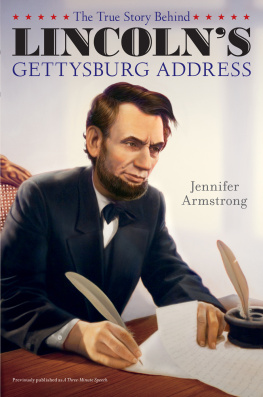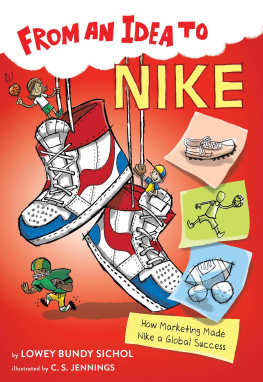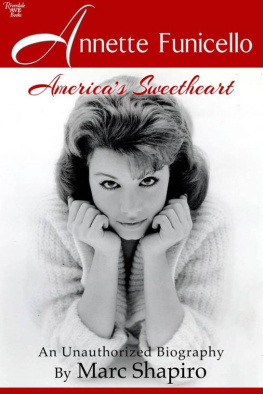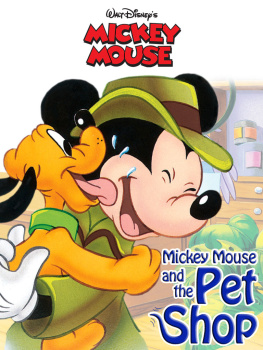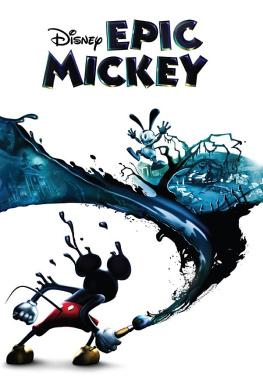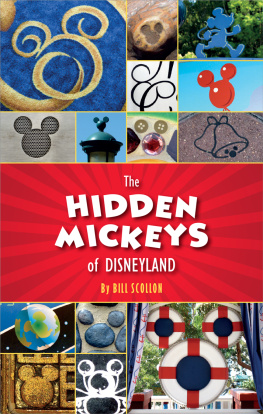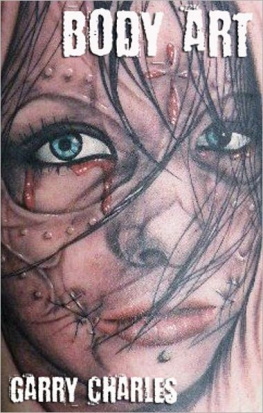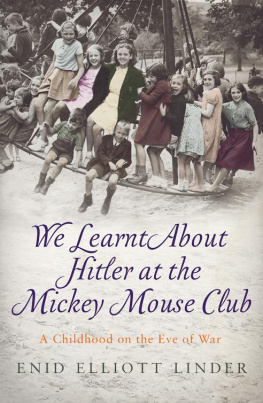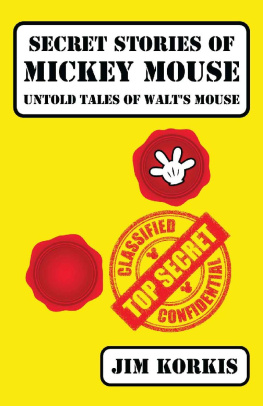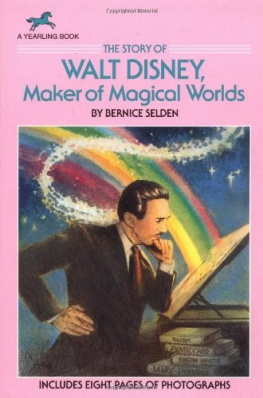Copyright 2010 Jennifer Armstrong
All rights reserved. Except as permitted under the U.S. Copyright Act of 1976, no part of this publication may be reproduced, distributed, or transmitted in any form or by any means, or stored in a database or retrieval system, without the prior written permission of the publisher.
Grand Central Publishing
Hachette Book Group
237 Park Avenue
New York, NY 10017
Visit our website at www.HachetteBookGroup.com
www.twitter.com/grandcentralpub
First eBook Edition: October 2010
Grand Central Publishing is a division of Hachette Book Group, Inc.
The Grand Central Publishing name and logo is a trademark of Hachette Book Group, Inc.
ISBN: 978-0-446-57434-1
E2-20181211-JV-PC-VAL
To my familyDad, Mom, Scott, and Juliefor always making me feel like a child star
Journalism is difficult without willing subjects, and this book wouldve been impossible without the witty, articulate, helpful showbiz pros known as the former Mouseketeers being willing to share their precious life stories with me. They became my teen idols fifty-plus years after the fact. Mr. Disney would, indeed, be proud. This book, however, simply would not exist if not for my tireless editor, Celia Johnson, who also patiently walked me through my first book. Agent Nicole Steen played matchmaker and changed my life in the process.
Emily Winter took on the arduous task of transcribing my early interviews, and Joe Lynch did the same with reams and reams of my later interviews. This book could not have happened in any reasonable amount of time without them and their fearless Google-researching abilities. My esteemed Entertainment Weekly colleague Ken Tuckera true role modelshared his childhood love for The Mickey Mouse Club with me in both early and late stages of this book, which informed my approach immensely. Former Disney librarian Paula Sigman-Lowery was generous with her endless knowledge of the subject and her affection for the show. Allison Hantschel and Tanner Stransky provided emotional support early and often; Heather Wood Rudulph kept our business going and, with her husband Ken, provided my second home in Los Angeles; and Dave Freiberg gave me shelter in Sacramento and continuous encouragement. Paul Katz provided all of the following: encyclopedic TV knowledge, emotional support, a lightning-fast read of a much longer first draft, more emotional support, a hell of a lot of wine, and even, for better or worse, Mouse ears. I shudder to think how long it would take me to repay such favors, but luckily, were not keeping score (right?). And Jesse Davis didnt just take a great author photo (if I do say so myself)he also kept me going during some critical stages of this book. I didnt know how much I needed him until he showed up.
I must also thank Entertainment Weekly overall for nine destiny-altering years of top-notch training in professional pop culture punditry and the most supportive editor a girl could have, Henry Goldblatt, for helping me carve out the time for this project. Long live smart, classy entertainment journalism.
This book is based on interviews with several of the original Mouseketeers as well as published accounts of their time on The Mickey Mouse Club. Unfortunately, some of the major figures involved in the shows successincluding Walt Disney, adult Mooseketeers Jimmie Dodd and Roy Williams, and Mouseketeer Cheryl Holdridgehave died. Standout Mouseketeer Darlene Gillespie was unreachable for comment after years of being out of touch with her former costars. And the most well-known Mouseketeer of all, Annette Funicello, can no longer participate in interviews due to her now twenty-year-plus battle with multiple sclerosis. Where possible, these key players perspectives are represented by their previous interviews and writings about their Mouseketeer experiences.
MAKING A
PHENOMENON
L onnie Burrs blond hair would be just so: the sides slicked back, the top a forever-cresting wave rising above his smooth forehead and breaking along the back of his skull. And then, as usual, one of the paunchy Mickey Mouse Club producers would come along and flatten the twelve-year-old Mouseketeers coif with one glunk of his black-winged beanie straight onto the top of his head, suctioning it to his cranium and cutting a line across his eyebrows as if, perhaps, his brain might come off with it if squeezed tightly enough. A guy could have the coolest hair in town, but no one would know about it if he wore his Mouseketeer cap according to regulation. This fact alone made many of the older, teenage boys among The Mickey Mouse Clubs two dozen cast members hate those ears that would become such icons of the 1950s. Pompadours were the rage. The guys had to have their waves out. And producers demands that they wear the stupid hats way down on their heads wrecked everything. All the guys hated the ears, Lonnie says now. Theyd always want us to wear it like a monk.
The solution: the boys would act like they were going along with the producers ridiculous rules until the last second before shooting started, then sneak the cap back two inches or so, just as cameras started to roll, pushing as much hair as possible forward with it to approximate a decent wave. After all, theyd spent most of their preparation time in the morning washing, drying, parting, combing, dovetailing, and applying a gooey wave-set product that would dry as hard as glue, just to do it all over again and again throughout the day as they sweated through their dance numbers. It was the dawn of the rock n roll era, and hair was a priority. So time and again, Lonnie and castmates Bobby Burgess and Tommy Cole would be there on the Mouseketeer soundstage, fidgeting a fraction of a second before the scene, doffing their caps to liberate their waves just as cameras started to roll. If you watch the show, you can see the different sizes of waves out front, Lonnie says. All of us boys had full manes of hair, and they wanted none of it showing, Tommy says. The girls all still looked pretty because they had these waves of hair flowing down, but they wanted to make the boys look like little bald people!
Yet when the stage bells rang to signal the cameras were rolling and the director called for action! youd never know the angst those ears were causing the boys. The faces beneath the hats would smile like that day was the best one of their young lives as they tapped, twirled, and sang their way through songs about everything from the importance of drinking milk to bicycle safety to cooking with Minnie Mouse. The millions of kids watching from home on the other side of the screen soaked it all in, oblivious to even the slightest hint that their favorite TV stars could be anything except cheerful. After all, the cast of Mouseketeersknown as Mice to those on the insidewere the most popular kids in the country, the envy of every kid growing up in the mid-1950s, privileged members of the fairy-tale-perfect Walt Disney family.
At five p.m. every weekday, just when homework had started to feel unbearable but dinner was still simmering on the stove, youthful fans would rush to the television sets their parents had just purchased, click the dial to ABC, and sing along from the opening Mickey Mouse Club March to the final Alma Mater sign-off. Theyd delight in the four fifteen-minute segments of the daily show: the newsreel, the Mouseketeers performance (which could include skits, dance numbers, circus acts, or performing guests, depending on the day), the Mickey Mouse cartoon, and the unfolding drama of serials such as The Adventures of Spin and Marty and The Hardy Boys. Though the Mouseketeers were only a portion of the show, they were the part the fans cared about: Loyal viewers wanted to belong to any club that included these kids who seemed to know how to do anything and everything.


